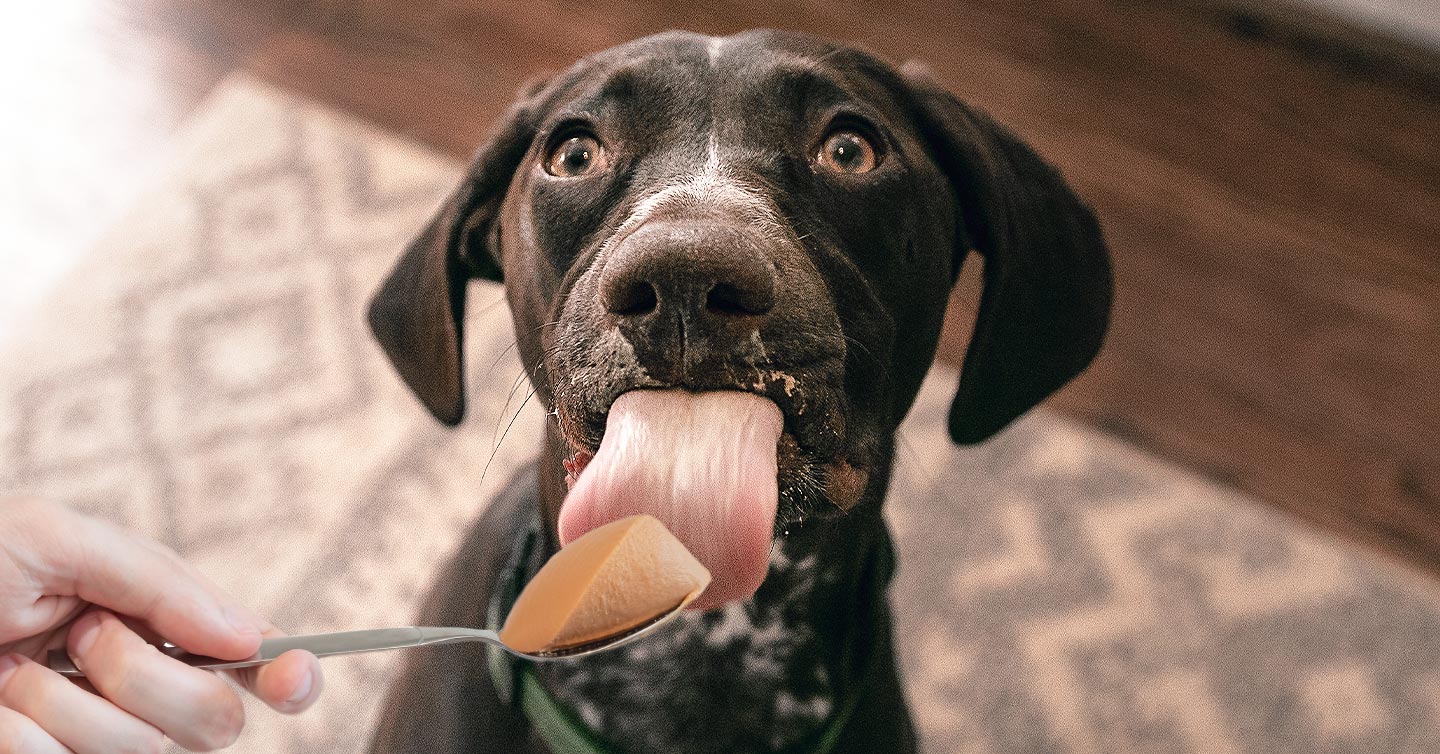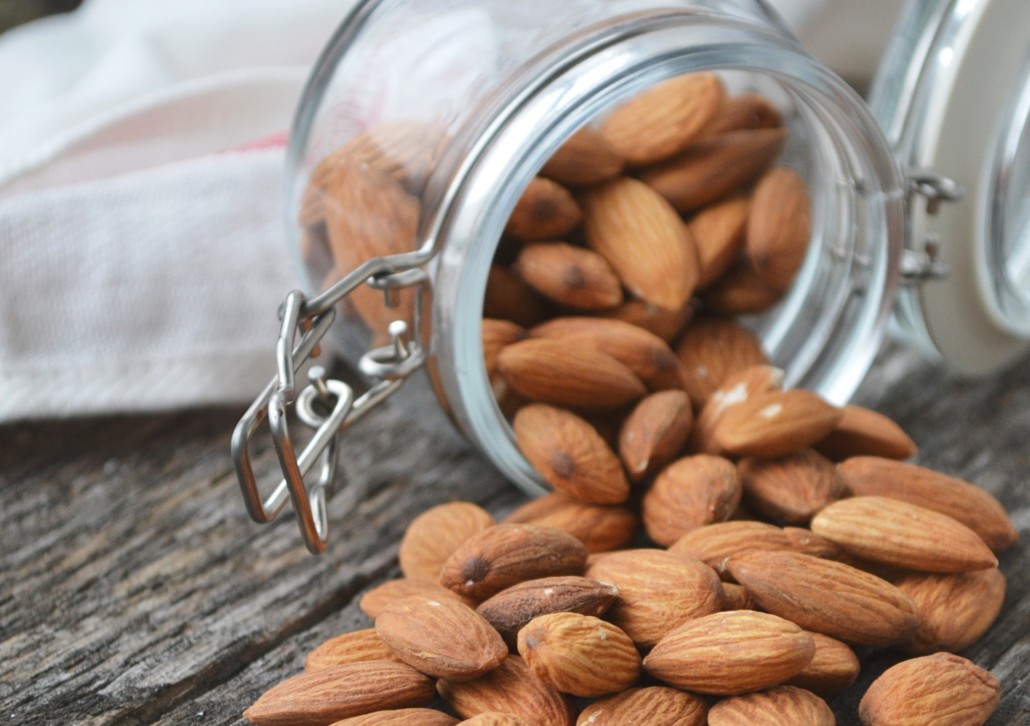Dogs will look at any food in your hand like it’s the only thing that matters – even if he has just eaten something delicious from his own plate. Keeping your dog safe and healthy is important. But before you feed them any snacks, take a moment to think about what’s in the treat so they can enjoy it without getting sick. Almonds are the perfect snack for people looking to live healthier lifestyles. They’re packed with nutrients and can help you lose belly fat, promote heart health or keep your cholesterol in check. So, can dogs eat almonds?

The sweet almonds we get from our local grocery stores are totally safe to eat, but it’s important not to confuse them with bitter varieties. Bitter almonds are one of the most toxic nuts you can eat, containing prussic or hydrocyanic acid which is deadly if consumed. It only takes 7-10 unprocessed bitter almond to kill.
However, there are some nuts that humans can eat without any issues while still being toxic to dogs. Macadamia nuts are toxic to dogs and can cause temporary weakness, vomiting or diarrhea. Walnuts and pecans may not be toxic themselves, but many vets recommend avoiding them anyway because moldy husks can produce a chemical that’s harmful to pets.
Though almonds are safe for dogs, there’s still the risk of a few things happening if you share your snack.

Salt and Seasonings
Almonds have long been associated with health benefits, but they now come in a variety of flavors and coatings. Some people love the taste while others prefer their plain nuts. We know that dogs are toxic to chocolate, so never offer them a covered almond. But what about the other varieties?
When it comes to seasonings, we should be careful about giving our dogs any excess salt or sugar. Artificial sweeteners also have a high ranking on the list of things that shouldn’t make an appearance in your pet’s diet. Some brands add xylitol to their almonds so that they can keep the sugar and calorie content down. Xylitol is another thing which poses serious risks for dogs but has no effect on humans.
Even though they need sodium, too much of it in their diet can be bad for your dog. If your dog ingests too much salt, it can lead to dehydration or even sodium ion poisoning. Symptoms include vomiting, limping and lethargy. It’s not likely that your dog will become seriously sick from just a handful but because almonds often come in salted varieties we want you to know about this too.

Obstructions
Small breed dogs, such as the Chihuahua may not be able to chew thoroughly and could potentially choke on small items. This is less of an issue with larger breeds but it still pays attention when raising your pup because their throats are so small. Slivered or sliced almonds can be more easily chewed than whole nuts. Crushing the nut in your hand before giving it to him will also help with its digestion.
Calories
You can never go wrong with a delicious, crunchy treat. However you should consider your dog’s overall diet before giving them any snacks. Too much calories become excess fat, and this excess fat would lead to obesity. Pudgy puppies may look adorable and cuddly, but they can cause serious problems down the line. They are more prone to heart disease as well as liver conditions like fatty deposits or an enlarged organ that affects its function in your dog’s body system. Your dog’s diet should be tailored to his specific needs, which are determined by breed and age. Be sure that you talk with your vet about what he or she recommends for the best possible outcome.
It’s often said that you should feed your pup a diet composed of 90% food and 10% treats. Almonds are not the best choice to stay low-calorie. Just 1 ounce of almonds can contain up to 130 calories. If you’re looking for a way to keep your pup slim, consider different snacks like blueberries or hard-boiled egg.

Almond Butter Vs. Peanut Butter
When you consider switching your dog’s peanut butter to almond, here are some things that may come into play. Peanut and Almond butters are great additions to your pet’s diet, with similar calorie content. While almond butter contains more vitamins and minerals than peanut butter, it still isn’t a complete substitute.
Almond butter is often seen as a healthier alternative to peanut butter, but only a bit. The type of nut you choose will depend on your needs and preferences; however it’s important that they have no added sugars or xylitol in them.
Can Dogs Eat Almonds?

Dogs can eat almonds, but not all of them are safe for your pup. Raw or roasted plain, unsalted almonds are the best choice. Make sure you watch the size of your almonds to avoid obstructions, especially in smaller dogs and not give them too many. Giving your dog a small amount of nuts can seem like an insufficient reward for good behavior, but you’ll make up for it by putting the tasty treats in something that will keep him busy and happy.
FAQs (Frequently Asked Questions)
WILL 1 ALMOND HURT MY DOG?
Almonds are not a good idea for dogs. One or two might not cause any issues, but too many and the dog could experience vomiting, diarrhea, gas, lethargy (sss) loss of appetite – just like people!
WHICH NUTS ARE TOXIC TO DOGS?
Macadamia nuts Black walnuts Old and moldy walnuts Raw Cashews Pistachios
WHY SHOULD DOGS NOT EAT ALMONDS?
Almonds’ high fat and calorie content can be dangerous to your dog’s health if they are not monitored closely. Dogs might gain weight or develop pancreatitis due to their appetite for these treats, which is why it is important that you monitor how much food each animal has after eating nuts, so there aren’t any surprises later down the line!
WHY DO DOGS LOVE ALMONDS?
Dogs can’t get enough almonds, especially those with a savory flavor. Packaged nuts are seasoned heavily in salt, making them dangerous for your dog if he/she has heart ailments because it causes increased water retention and increases the risk of certain health conditions such as hypertension or congestive heart failure.
If you know someone who might like this, please click “Share”!






